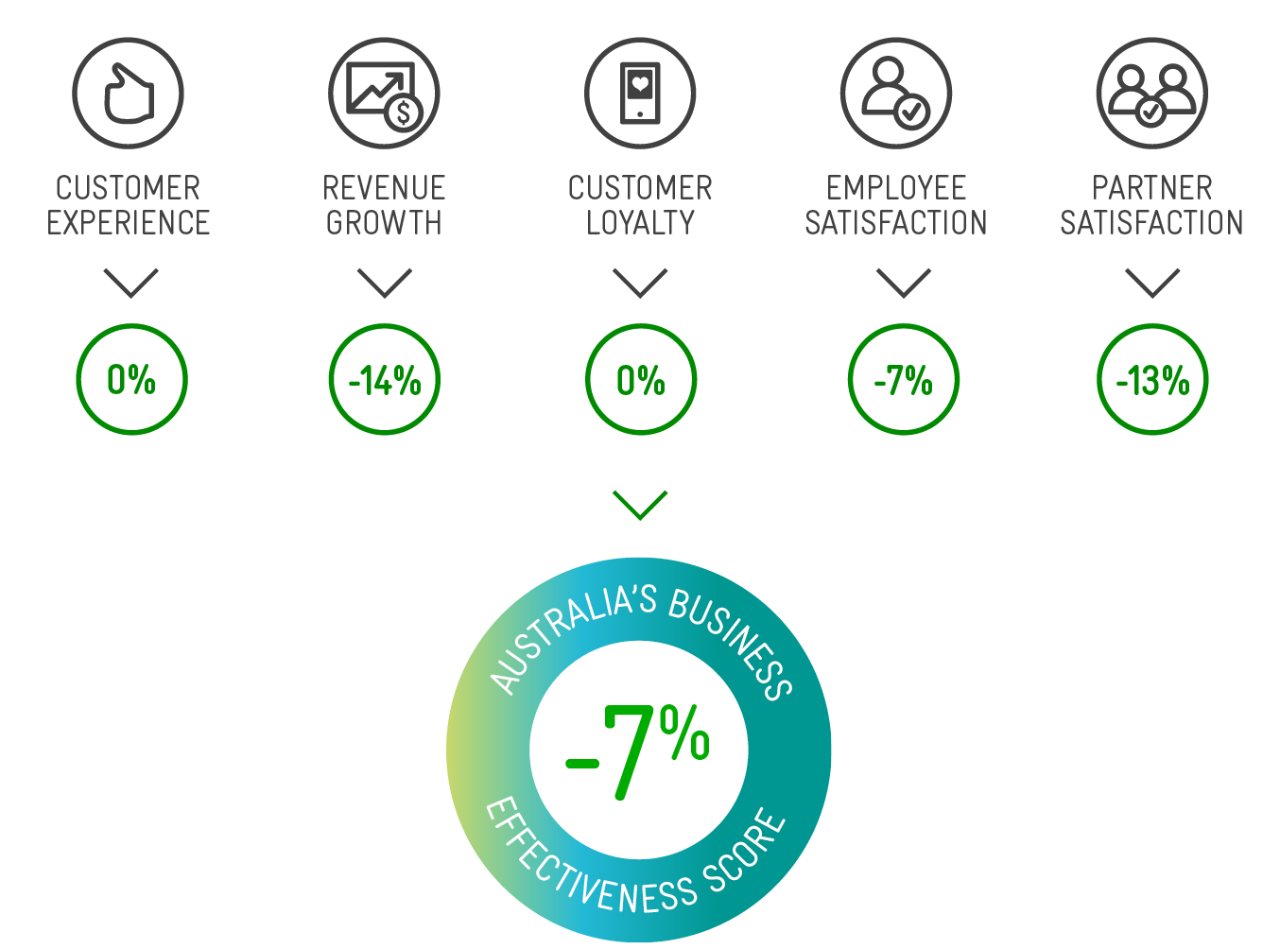Are Australian businesses effective?

Operating as a traditional business is a challenge in the face of relentless change when flexibility and adaptability are paramount. A new rating scale finds Australian businesses to be operating ineffectively and well behind the transformation curve – so how can they catch up?
Executives understand the importance of flexible business functions but admit being a long way from putting them into practice, according to new research that reinforces the importance of thinking differently about product and service delivery.
Almost nine in 10 participants in the study - Powering your business through relentless change – conducted by Telstra Wholesale using in-depth interviews with 200 Australian C-level executives and senior business leaders, agreed that 'businesses that fail to embrace flexible, agile business models would cease to be competitive in the future'.
While positive business outcomes were mostly seen in the few organisations that were described as ‘transformational’, the majority of respondents said they were still running 'traditional' business models – blocking the dramatic cultural and procedural change needed to compete in a business climate where innovation and flexibility are paramount.
The analysis confirmed that mindset and structure improvements are the best way to improve effectiveness – but also found that business leaders feel constrained by organisational inertia.
The extent of the problem became crystal clear when the responses to the study (20 responses from each participant, aligned within four 'pillars' of their business model) were applied to the Business Effectiveness Scoring System (BESS), a Telstra Wholesale instrument for measuring business effectiveness. The overall score for Australian businesses’ effectiveness was –minus 7 per cent.
BESS evaluates Australian businesses against key business outcomes – including customer experience, revenue growth, customer loyalty, employee satisfaction and partner satisfaction – and the negative overall score confirms current business models are not effective in achieving positive outcomes. Responses were rated against the type of business that produced them, with the eight per cent of respondents who categorised their business as ‘transformational’ delivering an average BESS of 9 per cent; 'transitional' companies averaged –minus 3 per cent and 'traditional' businesses (74 per cent of respondents) averaged –minus 9 per cent. Stagnation, it is clear, breeds inefficiency.
Customer experience and customer loyalty for all business models had neutral scores of zero but effectiveness lagged dramatically in revenue growth (-minus 14 per cent) and partner satisfaction (-minus 13 per cent). When responses were analysed against four pillars – 'mindset', 'structure', 'ecosystem', and 'platform' – the mindset and structure pillars delivered the most positive scores (1 per cent each) while the platform domain scored –minus 14 per cent and ecosystem scored -minus 15 per cent.
“In general, Australian organisations do not consider their current platform and ecosystems to be effective in delivering positive business outcomes,” the analysis concluded. “The more transformational a business is, the more it achieves positive scores calculated through BESS.”
Towards an Agile business

The analysis confirmed that mindset and structure improvements are the best way to improve effectiveness – but also found that business leaders feel constrained by organisational inertia. To resolve this, they must develop clear strategies for transforming into the type of flexible, thriving business correlated with high business effectiveness.
Agile methodologies offer an increasingly popular answer. Originally offered as a way of streamlining software development, Agile bridges the divide between business leaders and software developers that has often seen well-funded projects fail to deliver business outcomes upon delivery months or years after their inception. This fostered business inefficiency and the functional deficiencies linked with negative BESS scores in the research.
Encapsulated in the widely-adopted Agile Manifesto, Agile development breaks down large software projects into a numerous smaller, discrete functions. New versions of the project are released weekly to business and technical owners who meet to measure progress to date, incorporate feedback and design changes, and reprioritise functional requirements as finances, manpower and time allow.
Agile's continuous feedback-driven delivery has benefited companies such as WA energy provider Synergy, the Commonwealth Bank and News Corp – which, like most large businesses, had struggled to transform businesses shackled by well-entrenched processes and policies.
“We know that just getting good at products and services is not enough to survive,” Cameron Gough, general manager of Australia Post's Agile-focused Digital Delivery Centre (DDC), said at the recent Agile Australia conference.
“The organisations that will survive are the ones that are the most adaptable. The DDC was all about showing a large organisation that there is another way to work.”
Agile consultancies help businesses choose from the many frameworks for implementing Agile across an ICT organisation or an entire business – Scaled Agile Framework (SAFe), Agile Unified Process (AUP), dynamic systems development method (DSDM) and extreme programming (XP), to name a few.
Although it has roots in software development, businesses are finding that the core principles of iterative working are helping drive non-ICT related improvements as well. Anecdotally, Agile businesses are: reducing costs; improving employee satisfaction; delivering more projects faster and to both budget and requirement; and, transforming more confidently into the online businesses they want to be.
By stepping away from restrictive cultures to embrace this change, businesses can target the 'mindset', ‘ecosystem’ and 'structure' pillars that can enable major improvements in business effectiveness.
In this way, Australian businesses can clear the decks and position themselves as agile leaders in the new world of business.

